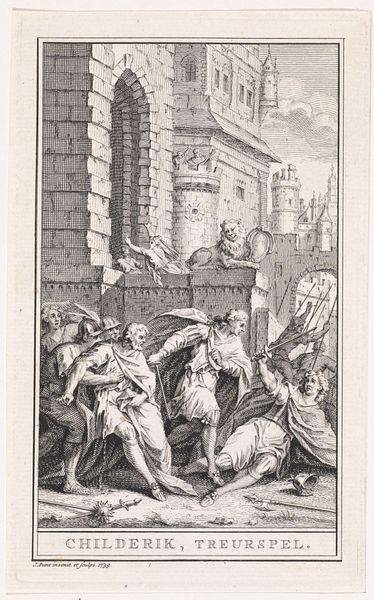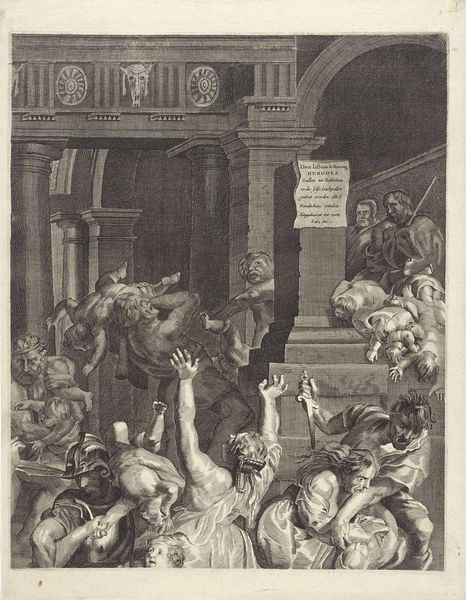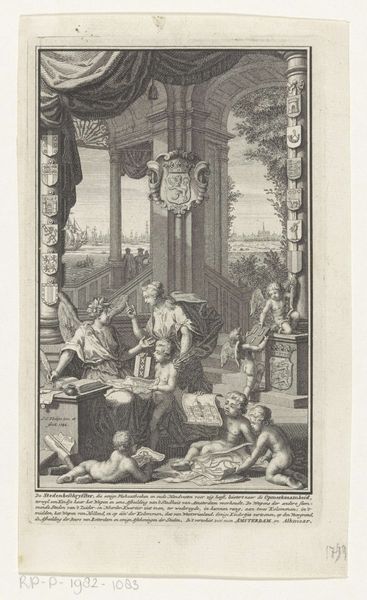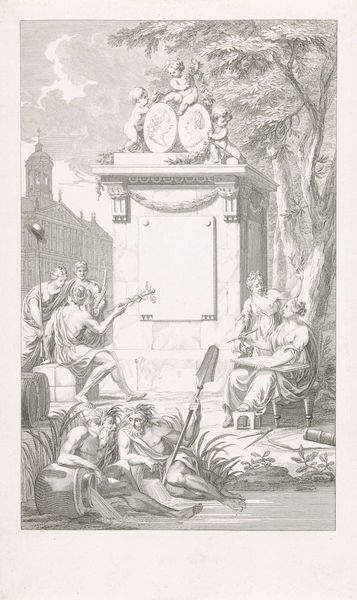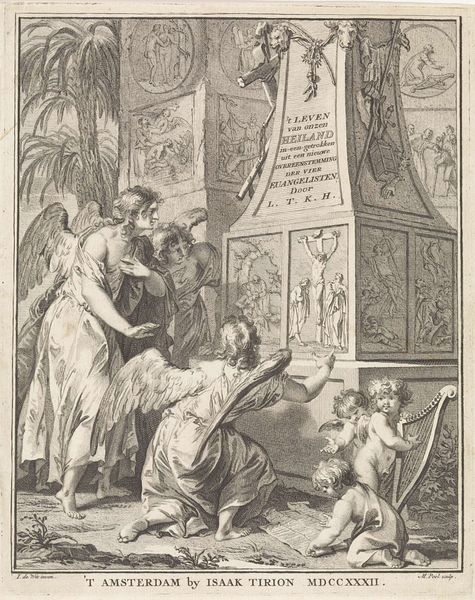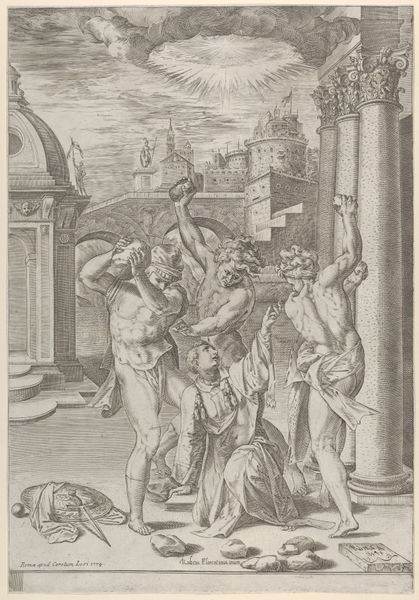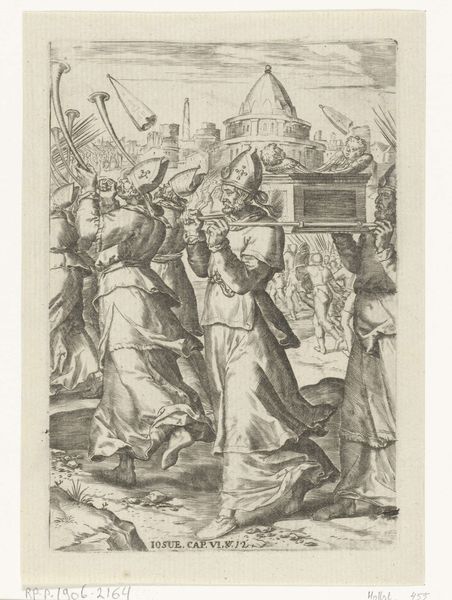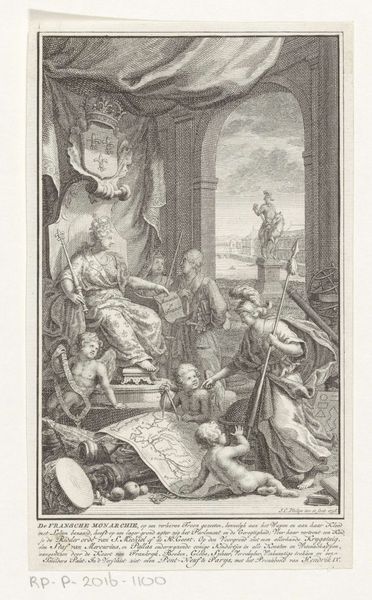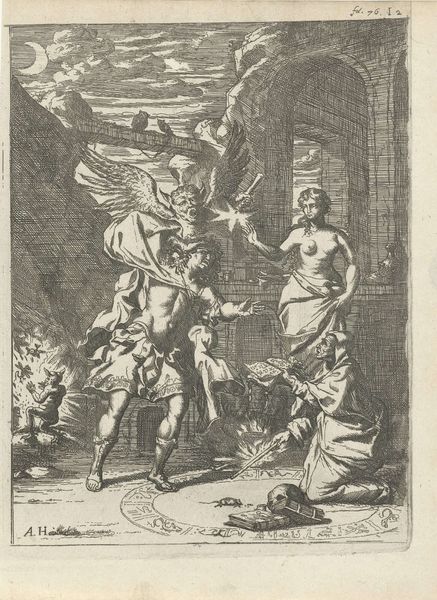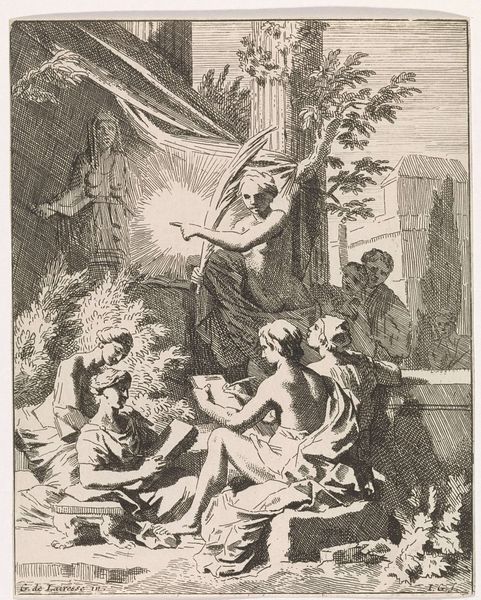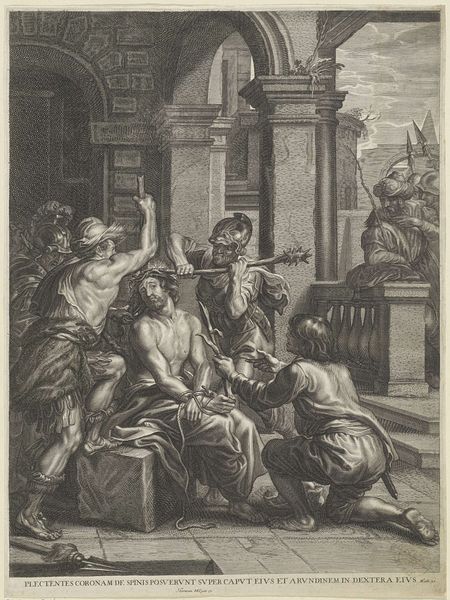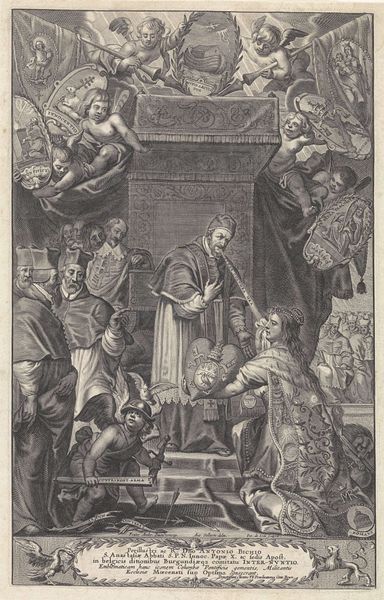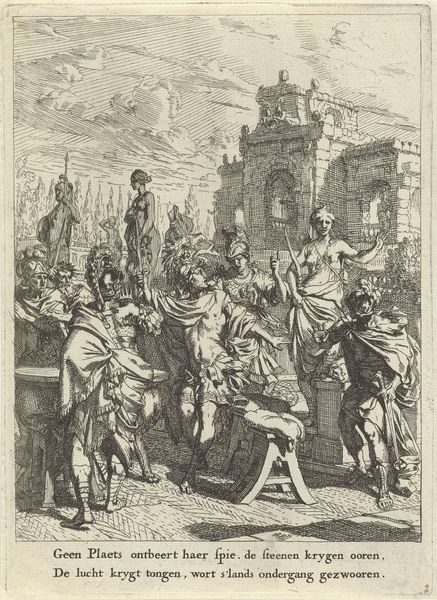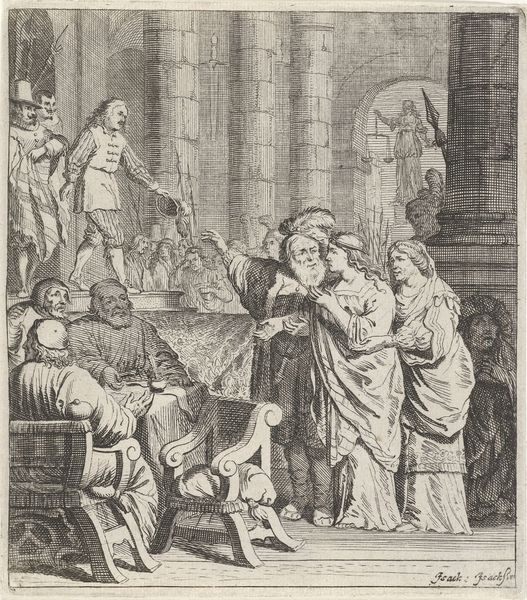
Allegorische voorstelling met de Dood, Vader Tijd en een oude man 1698
0:00
0:00
janvanvianen
Rijksmuseum
engraving
#
allegory
#
baroque
#
form
#
line
#
history-painting
#
engraving
Dimensions: height 138 mm, width 90 mm
Copyright: Rijks Museum: Open Domain
Editor: So this is Jan van Vianen's "Allegorische voorstelling met de Dood, Vader Tijd en een oude man" from 1698, currently held at the Rijksmuseum. It's an engraving, and quite striking. I’m immediately drawn to the sharp contrast created by the lines and how it gives everything a rather severe feeling. What compositional elements stand out to you? Curator: Indeed. Observe the clear delineation of form. The artist's careful modulation of line weight creates a powerful visual hierarchy. Notice how the robust figure of Time, centrally located, bisects the image plane, literally mediating between mortality and the aged man. Note further the orthogonals receding into the architectural background, creating depth. Do you notice anything about the balance of dark and light? Editor: Well, the left side seems a bit darker, drawing our eye to the skeletal figure, and emphasizing the man’s impending death. But how would you see these elements working together? Curator: Consider the formal relations: The crisp lines accentuate the anatomical rendering of both the skeleton and Time, highlighting their bodies and, implicitly, mortality's relentless physicality. The relatively sketchier lines describing the old man hint at his frailty. The entire composition can be decoded as a meditation on the human condition using semiotics. Editor: It's interesting how even without knowing the precise meaning, focusing on the formal elements provides a rich understanding of the work. Thank you. Curator: Precisely. And remember, by analyzing form, we uncover the inherent structure and meaning embedded in the artwork itself.
Comments
No comments
Be the first to comment and join the conversation on the ultimate creative platform.
